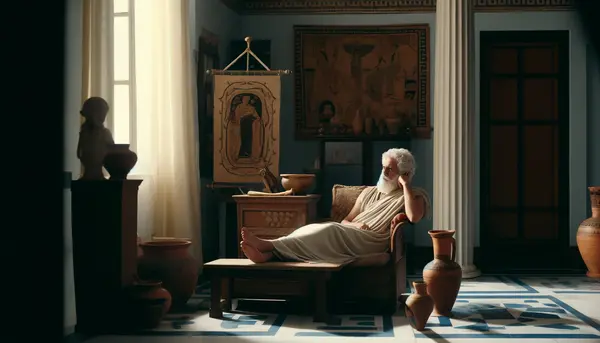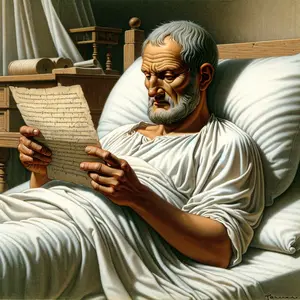Summary and important key points from Letters of the Stoic written by the Stoic Seneca the Younger to his friend Lucilius Junior

Seneca on having a clear goal
In Letter 71, titled "On the Supreme Good," Seneca discusses the nature of the Supreme Good and the importance of aligning one's life with this ultimate goal. He begins by acknowledging the difficulties of providing timely advice across long distances but emphasizes the necessity of grounding decisions in the overarching purpose of life. Seneca explains the importance of having a clear aim in life: "The artist…

Seneca on Suicide
In Letter 70, titled "On the Proper Time to Slip the Cable," Seneca reflects on the nature of life, death, and the appropriate time to commit suicide. In my opinion, this is probably the most controversial letter he wrote. It should be noted that this is not a Stoic view but only that of Seneca - his take on how to take back your freedom . There was never this…

Seneca on welcoming death
In Letters from a Stoic 69, titled "On Rest and Restlessness," Seneca advises Lucilius on the importance of stability and the dangers of frequent movement. He emphasizes the need for a settled spirit and the benefits of consistent, uninterrupted remedies for the soul. Seneca begins by addressing Lucilius's habit of changing locations frequently: "I do not like you to change your headquarters and scurry about from one…

Seneca on Retirement
In Letters from a Stoic 68, titled "On Wisdom and Retirement," Seneca offers advice on the value of retirement and solitude for the pursuit of wisdom, while addressing Lucilius's concerns about public life and its demands. Seneca starts by endorsing Lucilius's plan to retire and seek repose: "I fall in with your plan; retire and conceal yourself in repose." He emphasizes that Stoicism does not mandate public…

Seneca on Ill-health and enduring suffering
In Letter 67, titled "On Ill-Health and Endurance of Suffering" , Seneca addresses the challenges and virtues associated with enduring physical hardships. Seneca begins with a light-hearted remark about the inconsistent spring weather, using it as a metaphor for the uncertainties and fluctuations in life, particularly those related to health. Seneca mentions his personal struggles with old age and cold weather: "I do not yet trust…




